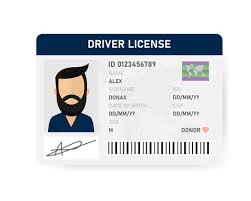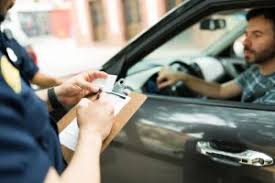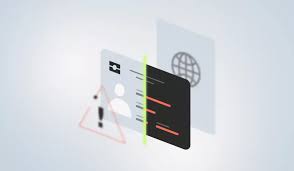Custom Fake IDs
Table of Contents:
- Introduction: What Are Custom Fake IDs?
- Overview of the fake ID market
- Legality and cultural context
- The art and craft of designing IDs
- A Brief History of Fake IDs
- The evolution of fake IDs through the decades
- The rise of counterfeit identification for novelty purposes
- Product Features: What Makes a High-Quality Fake ID?
- Realistic design
- Holograms, microprinting, and other advanced security features
- Scannability: Passing the swipe test
- Customization options: Names, photos, states, and more
- The Process of Creating Custom Fake IDs
- Software and design tools used in creation
- Steps from order to delivery
- Quality assurance measures
- Target Audience: Who Buys Custom Fake IDs?
- The variety of use cases: novelty, memorabilia, niche uses
- Demographics: College students, pranksters, collectors, and hobbyists
- Ethical boundaries: Buyers’ motivations and misconceptions
- Market Analysis: Global Demand for Fake IDs
- Key markets and regions
- Industry growth projections
- Competitive landscape: Major players in the fake ID industry
- Online market dynamics and social media’s role
- Why Choose a Custom Fake ID?
- The appeal of customization and personalization
- Factors influencing purchase decisions
- Fake IDs vs. novelty IDs: Understanding the difference
- The Legal Grey Area of Fake IDs
- Legal implications for buyers and sellers
- Differences in legality across states and countries
- Case studies: Fake ID controversies and enforcement
- Fake ID Technologies and Innovations
- New developments in security features
- How fake IDs evolve to match real government-issued IDs
- Trends in digital and physical ID production
How to Spot a Fake ID: Insights from Security Experts
- Tips for recognizing counterfeit IDs
- Advances in ID scanning technology
- How businesses can protect themselves from fake IDs
Ethical Considerations and the Future of Fake IDs
- The line between novelty and fraud
- Potential changes in legislation and enforcement
- The growing need for real-time ID verification
Conclusion: The Role of Custom Fake IDs in Modern Culture
- Reflection on the balance between novelty and legality
- Predictions for the fake ID market’s future
1. Introduction: What Are Custom Fake IDs?
Fake IDs are counterfeit identification cards designed to mimic legitimate forms of ID, such as driver’s licenses or passports. While the term often carries a negative connotation related to underage drinking or illegal activities, the modern market for custom fake IDs extends far beyond illegal usage. Today, people seek out fake IDs for various reasons, ranging from novelty items, personal memorabilia, or for creative entertainment purposes.
The rising demand for highly realistic fake IDs has sparked significant innovation in the industry. While buyers seek products that closely resemble legitimate forms of ID, sellers are leveraging technology to produce items that pass stringent tests, including scannable barcodes, holograms, and microprinting.
However, the custom fake ID market also exists within a legal grey area, raising questions about its ethical and legal boundaries. Before diving into the specifics, it’s important to understand what sets these fake IDs apart from everyday identification.
2. A Brief History of Fake IDs
The creation and use of fake IDs isn’t a modern phenomenon; their roots can be traced back centuries. From forged documents in ancient times to contemporary counterfeit IDs, the motivation has always been the same: bypassing restrictions or gaining access to restricted activities.
In the 1970s and 1980s, the rise of fake IDs began to take off, especially in college towns where students sought to access bars and nightclubs despite being underage. With limited technology available to verify the authenticity of identification cards, the market flourished.
Over the past few decades, fake ID creation has evolved into a sophisticated art form, with producers continuously improving design elements to meet the expectations of their target audience. From basic laminated cards to today’s complex IDs, the industry has undergone a dramatic transformation.
3. Product Features: What Makes a High-Quality Fake ID?
The modern fake ID is no longer a flimsy, easy-to-spot counterfeit. Instead, custom fake IDs are built with an array of high-tech features that closely mirror real identification documents.
Realistic Design
A high-quality fake ID replicates not only the appearance but also the feel of a real ID. This includes appropriate fonts, state emblems, correct spacing, and layout. The goal is to create an ID that will pass both casual inspection and close scrutiny.
Holograms and Microprinting
To replicate the authenticity of real IDs, fake ID manufacturers incorporate holograms, UV-reactive elements, and microprinting, all of which are commonly used in government-issued identification. These small details add layers of complexity to the fake, making it more challenging to detect.
Scannability: Passing the Swipe Test
Most fake ID buyers require an ID that not only looks real but also functions like one. This is where barcode and magnetic stripe encoding come into play. These features allow the fake ID to pass through scanners used by businesses to verify age or identity. Without a functioning barcode or magnetic strip, even the most realistic-looking ID can be immediately flagged as fake.
Customization Options
One of the key advantages of purchasing a custom fake ID is the ability to personalize it to your liking. Buyers can choose names, dates of birth, photos, and even select the state or country they want their fake ID to mimic. This level of customization increases the appeal of these products, making them highly sought after by niche audiences.
4. The Process of Creating Custom Fake IDs
Creating a high-quality fake ID involves both artistry and technology. Manufacturers often use specialized software and hardware to replicate the intricate details of real IDs. The process typically begins with a customer selecting their desired specifications, including the state or country the ID is intended to replicate, personal information, and any additional features they want added.
Once the design is finalized, it undergoes multiple stages of production. High-resolution printers create the basic card layout, while additional features like holograms and magnetic strips are added later. Finally, the ID is laminated and sent through a rigorous quality assurance process to ensure that it can pass real-world tests.
5. Target Audience: Who Buys Custom Fake IDs?
The buyers of custom fake IDs are diverse, ranging from college students to professionals. The target audience can be broken down into the following categories:
College Students: Often the most recognizable group associated with fake IDs, college students primarily purchase them to gain access to alcohol and nightclubs. However, they are also a significant market for novelty fake IDs, which serve as humorous or nostalgic memorabilia.
Collectors and Hobbyists: Some individuals collect fake IDs for their unique designs or as part of a larger collection of novelty items. These buyers are typically more interested in the craftsmanship and customization of the ID rather than its use for illegal activities.
Pranksters and Partygoers: Custom fake IDs are also popular as party props or gag gifts. These IDs may carry humorous names or photos and are not meant to deceive but rather to entertain.
Expats and Travelers: In certain cases, expats or international travelers may seek out fake IDs for non-illegal purposes, such as possessing a form of identification for use abroad that doesn’t require them to carry their real passport or driver’s license.
6. Market Analysis: Global Demand for Fake IDs
The market for fake IDs has grown significantly in recent years, driven by technological advancements that make it easier to produce high-quality products. Several regions and markets exhibit heightened demand:
North America: Particularly in the U.S. and Canada, the demand for fake IDs is tied to age restrictions on alcohol and nightlife. The 21+ drinking age in the U.S. is a significant driver of fake ID sales.
Europe: The market in Europe is generally smaller due to lower drinking ages and fewer restrictions on nightlife, but there is still a steady demand for novelty IDs and customized cards for entertainment purposes.
Asia: In countries like China and Japan, fake IDs are also becoming popular, especially for people who want to bypass social restrictions or for use in novelty purposes.
 fake ID features
fake ID features
 security features
security features
 What should ISS be on a fake I
What should ISS be on a fake I
 Utah driver's license
Utah driver's license